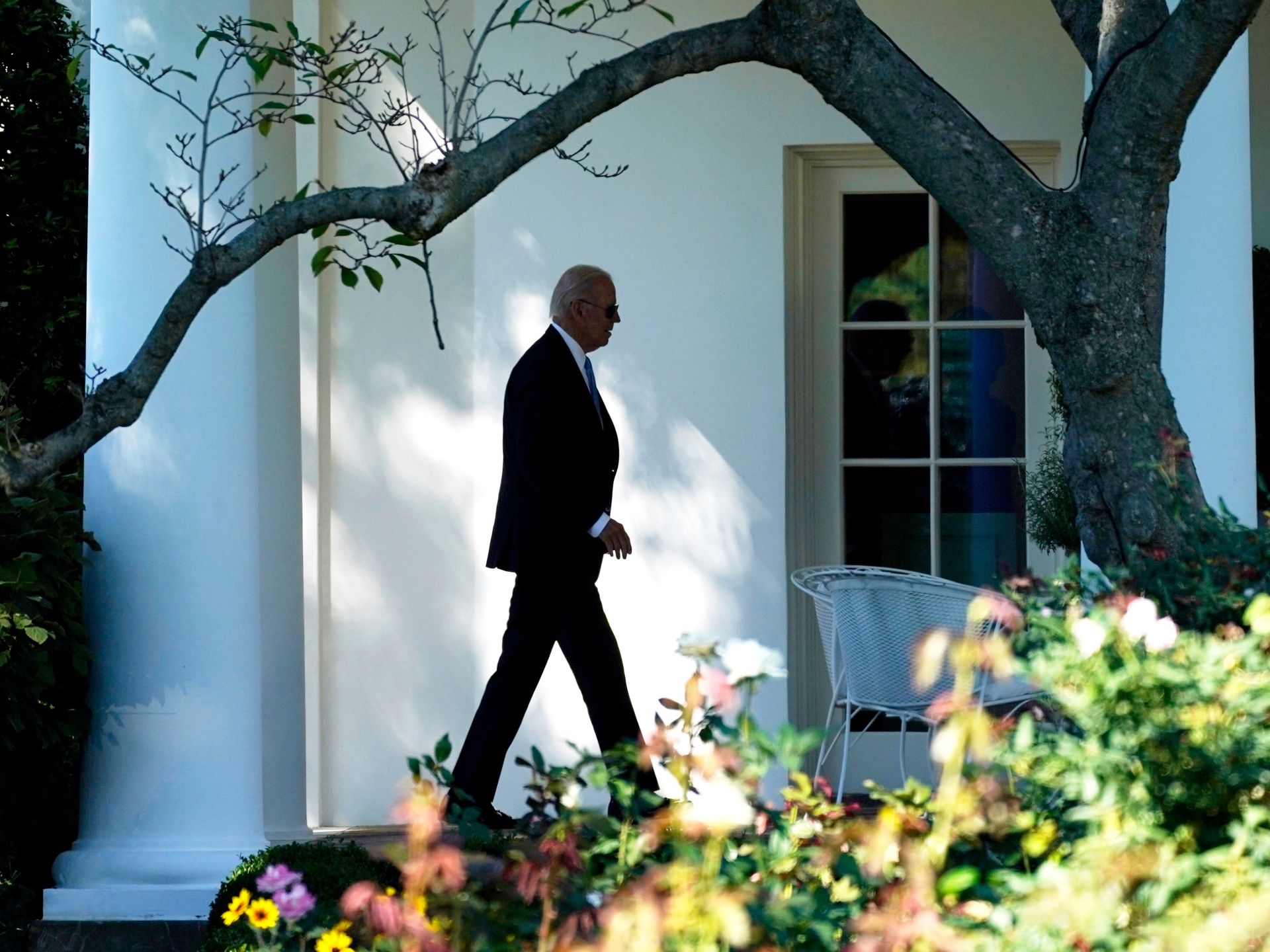US President Joe Biden will host leaders from the Pacific Islands this week in what the White House is billing as a first-of-its-kind regional leaders summit in Washington, amid increasing rivalry between the United States and China in the Pacific.
The two-day summit will kick off on September 28 and feature a dinner between Biden and the summit attendees.
The meeting was announced in June, soon after Chinese Foreign Minister Wang Yi embarked on a high-profile, eight-nation tour of the Pacific region that lasted 10 days.
“The goal [of the summit] is not just to listen” to Pacific leaders, “but to put substantial resources on the table,” Biden’s Indo-Pacific coordinator Kurt Campbell recently told the ABC, Australia’s national broadcaster.
“We’ve never had Pacific Island leaders to the White House,” Campbell said.
“It is not just one or two meetings. This is a very sustained effort that will involve almost all the key players in the US government that have interests in the Indo-Pacific”, he said.
The summit is the latest in a flurry of diplomatic activity by the US in the region this year. Addressing the Pacific Islands Forum, the key regional grouping, in July, Vice President Kamala Harris said the US was embarking on a “new chapter” of cooperation with the region, opening new embassies and ramping up funding and development support.
Anna Powles, a Pacific security expert at New Zealand’s Massey University, told Al Jazeera that the inaugural summit is about demonstrating the US “is engaged and committed in the Pacific”.
But she also noted that the Biden Administration’s core objective — “to secure a regional strategy between Washington and Pacific countries on shared interests” — is anything but certain.
“This is where the summit may unravel,” she warned.
Political troubles, Chinese overtures
The summit comes at a delicate moment for many Pacific countries, which are likely to be among the world’s most affected by the climate crisis.
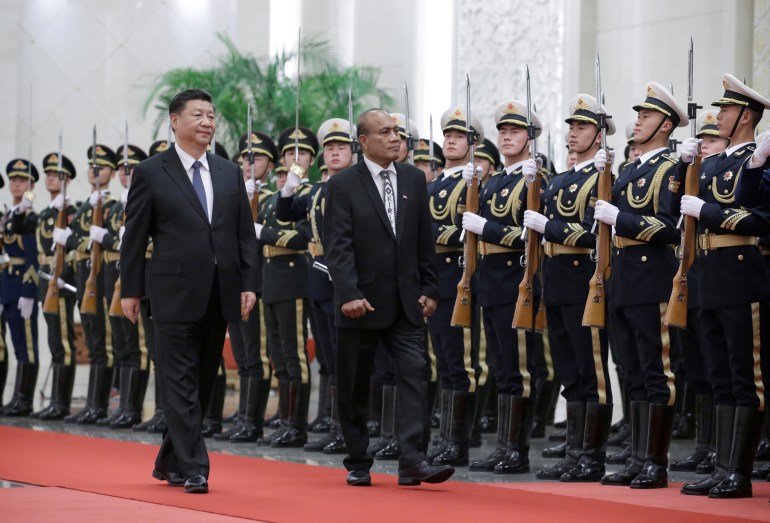
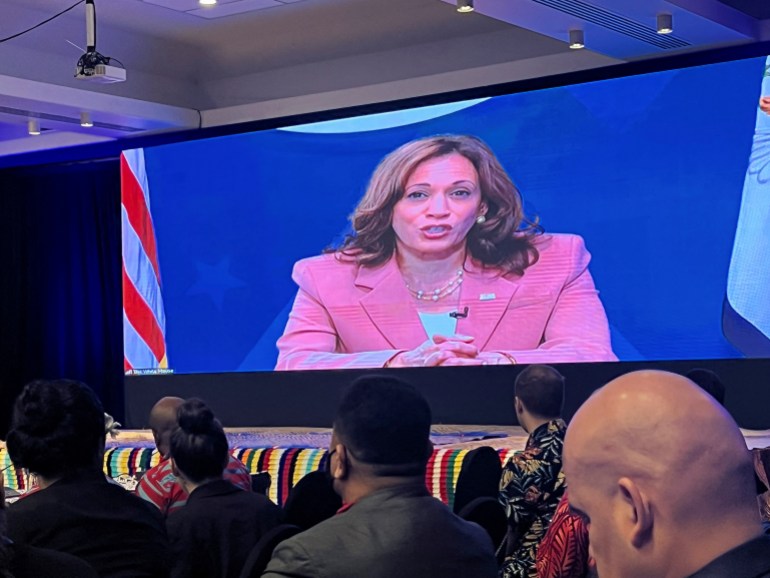
In addition to China’s overtures, controversial political decisions by governments in the Solomon Islands and Kiribati, and widespread political violence in Papua New Guinea in recent months, have drawn regional and domestic attention ahead of the summit.
And while the White House has amplified the historic nature of the event, key Pacific voices were initially omitted from the invite list, and some Pacific heads of government are not certain to attend.
The US initially decided to exclude Niue, New Caledonia, French Polynesia and the Cook Islands, which while being countries linked to either France or New Zealand, are full members of the Pacific Islands Forum. The 18-country group’s Secretary General Henry Puna, a former prime minister in the Cook Islands, expressed disappointment at not being given an invitation.
Kiribati, which is in the midst of a constitutional crisis that has seen its foreign-born high court judges dismissed and deported, has not confirmed it will be represented by its president, Taneti Mamaau, although he was in New York City for the United Nations General Assembly.
Vanuatu, which has recently navigated its own political crisis, is unable to send its prime minister, Bob Loughman, due to snap elections scheduled for October 13.
Other key figures, including Fijian Prime Minister Frank Bainimarama, have confirmed their attendance. Bainimarama has stressed previously that climate change is the biggest threat facing the region.
Two sources within Solomon Islands’s parliament confirmed to Al Jazeera that Prime Minister Manasseh Sogavare will be present, despite intensifying US and international scrutiny of his administration. But Australia’s national broadcaster ABC reported on Wednesday that his country would not sign the proposed partnership agreement for the region being offered by the US.
Since extending diplomatic recognition to Beijing in 2019, Sogavare’s government has deepened the country’s relationship with China, stoking domestic unrest and causing consternation in Washington.
After rioting in Honiara in November 2021 led to an Australian-led peacekeeping operation, it emerged that Sogavare planned to sign an additional security partnership with China. The agreement, which was signed in April, led to speculation about China’s desire to establish a naval base in the Solomon Islands, which Sogavare strongly denied.
“It is not in Solomon Islands interests, nor the interests of the region for any military base to be established in any Pacific Island country, let alone Solomon Islands,” Sogavare told assembled reporters at the Pacific Islands Forum meeting in July.
Kurt Campbell became the most senior US official to visit the Solomon Islands in the wake of the China deal, travelling to Honiara shortly after the security partnership was announced.
Earlier this month, Sogavare created further controversy, delaying scheduled elections by one year to avoid a clash with the 2023 Pacific Games, in a move critics condemned as a power grab.
The US and the Solomon Islands “discussed the Solomon Islands Parliament’s recent action to delay national elections, highlighting the importance of upholding democratic values” at a meeting between US Deputy Secretary of State Wendy Sherman and Solomon Islands Foreign Minister Jeremiah Manele in Hawaii on September 14, according to a read out from the meeting.
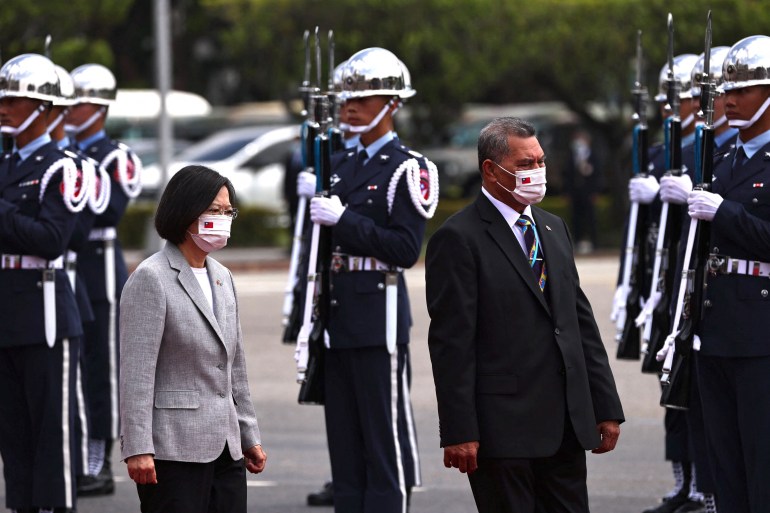
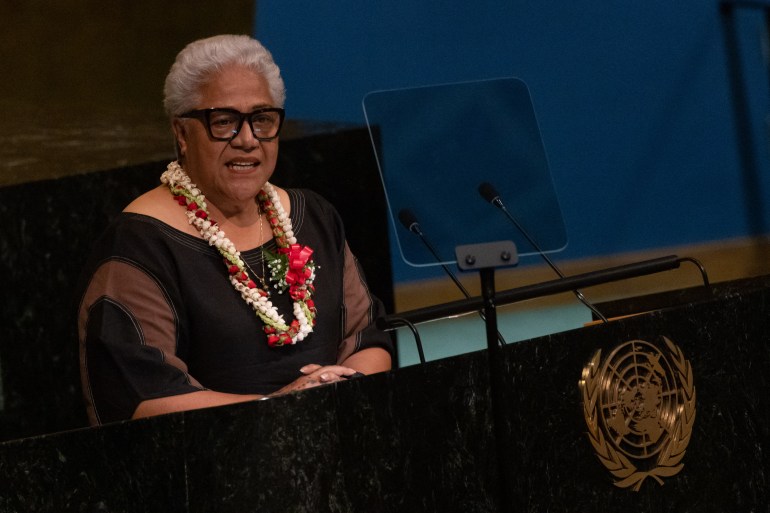
Matthew Wale, Solomon Islands’s opposition leader, told Al Jazeera that he believes Sogavare is already “pro-China and anti-US and allies”, but that he hopes the prime minister will “engage meaningfully, knowing that Solomon Islands’s interests and that of the region lie in a strong partnership with an alliance of democracies”.
US urged to listen
Though China’s growing influence in the region is clear, Beijing’s forays have not been without setbacks, and analysts have said there is growing concern in some Pacific capitals about the nature of China’s engagement and the way in which it pursues its interests.
While the Solomon Islands and Kiribati might have switched diplomatic allegiance to Beijing, four Pacific nations continue to recognise Taiwan, the self-ruled island that China claims as its own and has tried to isolate on the world stage. Earlier this month, Tuvalu’s prime minister made his first trip to Taipei, where he received a red carpet welcome and promised to “stand firm” with the island.
Wang’s Pacific tour, while significant, also failed to deliver Beijing’s objective of a sweeping region-wide deal on economic and political engagement, with some dubbing the trip only a ‘slight success’.
Still, in much of the Pacific, Chinese investment is now a major driver of economic activity.
In Vanuatu, Chinese funds for nation-building infrastructure such as roads and highways are entrenched and critical to ensure their promises of economic development are met.
Elsewhere, especially in the Solomon Islands, Chinese investment has been controversial and is often unpopular with voters. Beijing’s focus on sports stadiums and large public works, including telecommunications infrastructure, has been criticised, amplifying the desire of many Solomon Islanders to seek alternative resources from the US and its allies.
Instead of competing head-to-head with China on infrastructure investment, Dan McGarry, a journalist based in Vanuatu, believes the US should leverage its private sector capabilities to extend services that China is unable to offer to the Pacific.
“If I were looking for ways to improve people’s lives and ways to out-compete China, I’d be looking in tech and e-commerce,” McGarry said.

“Right now, I can set up a shopfront on Alibaba in 10 minutes,” said McGarry. “I cannot use Amazon. Period. Full stop. There’s no way I could do that. Same with eBay, same with countless other services.”
Wale hopes that Biden “will truly listen and allow Pacific Island leaders to influence the agenda”.
Massey University’s Powles agrees.
“What Pacific countries are looking for is evidence the US is listening to regional concerns and priorities,” she said.
